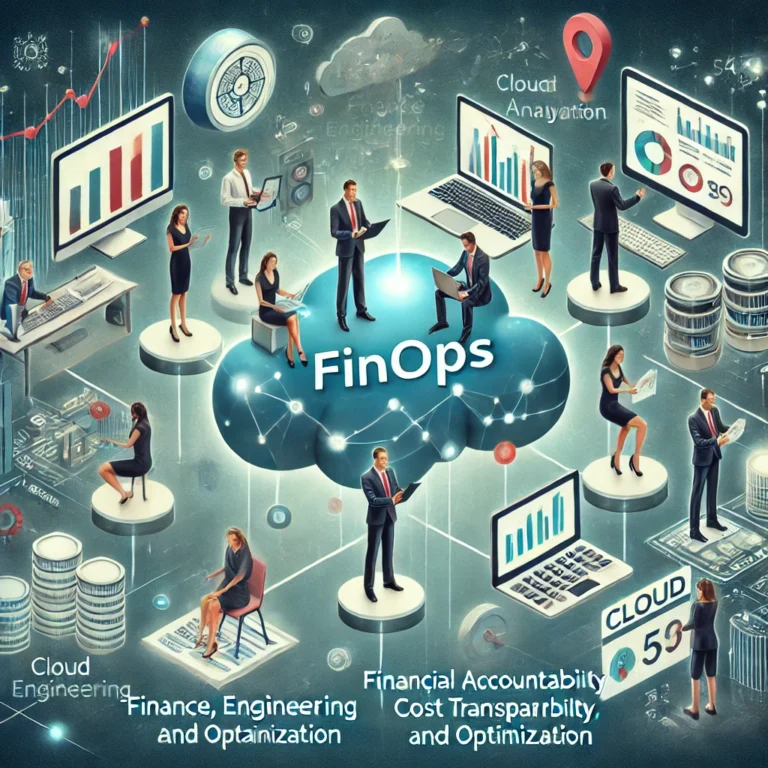Contents
Introduction
As businesses continue to embrace cloud computing, managing cloud costs effectively has become a critical challenge. Cloud computing offers flexibility and scalability, but without proper financial governance, costs can spiral out of control. This is where FinOps (Financial Operations) plays a crucial role. FinOps provides a structured approach to cloud financial management, ensuring cost transparency, optimizing spending, and aligning cloud expenses with business goals.
For an in-depth guide on FinOps, check out FinOps Foundation
Understanding FinOps
FinOps is a discipline that integrates financial management with cloud operations. It focuses on balancing cost efficiency with business agility by fostering collaboration between finance, engineering, and business teams. The core principles of FinOps include:
Visibility – Ensuring stakeholders have real-time insights into cloud spending.
Optimization – Continuously improving resource utilization.
Collaboration – Bridging the gap between technical and financial teams.
For best practices in cloud cost management, refer to AWS FinOps Guide
Cost Allocation and Visibility
One of the biggest challenges in cloud financial management is attributing costs accurately. FinOps enhances visibility by:
Assigning cloud costs to respective teams and projects.
Using tagging strategies for better cost tracking.
Leveraging cloud cost management tools to monitor spending in real-time.
A comprehensive list of cloud cost management tools is available at Gartner’s Cloud Cost Management Tools
Budgeting and Forecasting
Effective budgeting ensures that cloud expenditures align with business priorities. FinOps improves budgeting through:
Historical spending analysis.
Predictive analytics for accurate forecasting.
Setting budget alerts to prevent overspending.
To learn more about predictive cloud cost forecasting, visit Google Cloud Cost Management
Conclusion
FinOps is not just a trend; it’s a necessity in cloud financial management. By implementing FinOps, organizations can achieve cost efficiency, better financial planning, and strategic alignment of cloud investments. In an era where cloud adoption is accelerating, FinOps provides the financial discipline needed for sustainable business growth.
FAQs
What are the core benefits of FinOps?
FinOps enhances cost visibility, improves budgeting accuracy, and fosters collaboration.How can small businesses implement FinOps?
Start with basic cost monitoring tools and establish a cost-awareness culture.What are the best tools for cloud cost management?
AWS Cost Explorer, Google Cloud Billing, and Azure Cost Management.How does FinOps differ from traditional financial management?
FinOps is dynamic and real-time, unlike traditional financial management, which is periodic.What industries benefit the most from FinOps?
Tech, healthcare, finance, and retail industries benefit significantly from FinOps.
Please don’t forget to leave a review.

